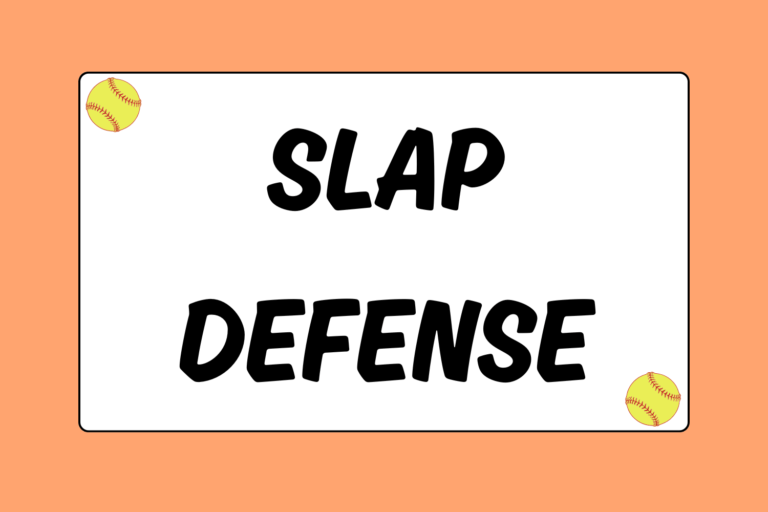Every serious player dreams of getting a scholarship to play collegiate softball. If this describes you, you’ve come to the right place. There are numerous rules pertaining to what you can and cannot do during the recruitment process, and it can be confusing and overwhelming without proper guidance.
This guide will introduce you to the basics of college recruitment so you’ll know what to expect and how to give yourself the best chance to play in college.
Freshmen & Sophomores in High School
Committed players will start the college search as early as possible, having already made up their minds that they want to play college ball. If you think it’s too early to start your search, think again!
During your freshman and sophomore years in high school (and before September 1st of your junior year), coaches are allowed to start showing interest in prospective student-athletes. Below is a list of what coaches can do:
- A coach can send you sports camps brochures, non-athletic institutional publications, and NCAA information questionnaires. These questionnaires are generally about your education and athletic abilities. By filling these out honestly, a coach will be able to determine if you are NCAA-eligible for softball at his or her school right from the start.
- A coach can also accept phone calls that are initiated by you and at your own expense. However, be aware that if you cannot reach a coach, the coach is not allowed to call you back. You can also start writing letters of interest to coaches; just don’t expect any written responses.
Of course, there are restrictions to what a coach cannot do:
- Coaches cannot call you. Specifically, they cannot legally initiate a phone call to you.
- Coaches cannot send you any written recruitment information.
NOT a Fun Fact
According to the NCAA, only two percent of high school athletes are awarded a full or partial scholarship to play at the collegiate level.
Unofficial Visits
You may also, at any time, go on an unofficial college visit to the campus of your choosing. The visits are unofficial because they are initiated by you and completely at your own expense. While on an unofficial visit, however, you may receive up to three complimentary tickets to the school’s sporting events. You may also talk face-to-face with a coach while on campus.
Unofficial visits are a great way to get acquainted with prospective campuses since you can take as many unofficial visits as you’d like — and you are allowed to talk to the coach on campus! So don’t wait around for the official offer. If you want to show initiative, take an unofficial visit. It would be a good idea to let the coach know ahead of time so that he or she can be on campus to answer any questions you may have.
September 1st, Junior Year
Starting September 1st of your junior year, it starts getting really exciting. Why? Coaches can finally reach out to you! Below is a compiled list of what a coach can now do for any prospective student-athlete:
- Coaches can send you any and all information about their athletic program: Media guides, brochures, schedules, personalized letters, news articles, pre-enrollment information, or the school’s admission and academic information.
- Coaches can now email back-and-forth with you, and they can respond to as many emails as you’d like to send.
- These perks are great, but coaches are still not allowed to return or initiate a phone call to you.
At this time, you should also focus on starting and completing your registration with the NCAA Eligibility Center.
July 1st, Junior Year
The reason July 1st is such a significant date is that you will have already completed your junior year in high school. That means you’ll now have even more recruitment benefits:
- A coach can now contact you in person off the school’s campus. This will mostly happen during showcase tournaments, so be ready! Act mature and respectful. Also, be sure to look sharp — keep your shirt tucked in so you don’t look sloppy for scouts!
- Phone calls are finally legal. A coach is allowed to initiate one phone call per week to your household. You, however, are still allowed to make an unlimited amount of calls to the coach.
At this time, you should also speak with your high school counselor and ask that your official transcripts be sent to the NCAA Eligibility Center upon the completion of your junior year (be aware that these transcripts cannot be faxed). Your registration with the Eligibility Center must be completed by the end of your junior year.
Senior Year

- You can take no more than one visit to a particular school. However, you cannot take an official visit until you’ve sent the school your transcripts and test scores.
- You may not take more than five visits total. So if you are a top recruit, choose carefully. And if needed, take some unofficial visits to help you decide.
- The college team is allowed to pay for your travel to their campus. The travel must equate to one round trip route. If it’s air fare, the cost may not exceed that of coach class.
- The college team is allowed to pay for your lodging. Most of the time, though, you will stay with student-host (a current team member) to help you get an idea of the experience of being a college athlete.
- The official visit may only last 48 hours; it’s timed from when you step on campus to the time you depart. Be very cautious of this time frame. If you stay longer than the 48-hour period, the college will no longer be able to pay for your travel home.
- The school may also entertain you (and your parents) during your visit. The most common type of entertainment is sporting events, to which you’ll receive complimentary tickets in the general area. If you go elsewhere for entertainment, it must be within 30 miles of the school. Your student host will be given 30 dollars to cover any and all expenses for entertainment.
- The college team will also pay for your meals, which are not included in the 30-dollar allowance for entertainment.
That may seem like a lot of rules to follow, but it’s really not all that bad. Just remember, you can’t accept (or be given) any special perk, such school memorabilia, first class air fare, box seats at sporting events, etc. This is all illegal according to the NCAA.
It All Leads up to This
If you’ve got a passion for softball, don’t let anything stop you from playing in college — and that includes a complicated recruitment process. If you want to play softball, there is a college for you. While it may not be your first choice, or even in your top ten, it does exist. Be patient and be open to every opportunity. Finally, don’t let the stress of recruitment ruin your final years of high school or distract you from your goals on the field. The process may seem long, but it will all be worth it when you find the right school.





